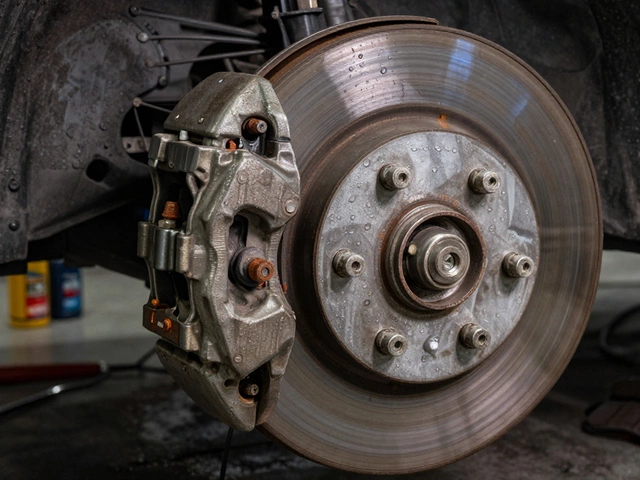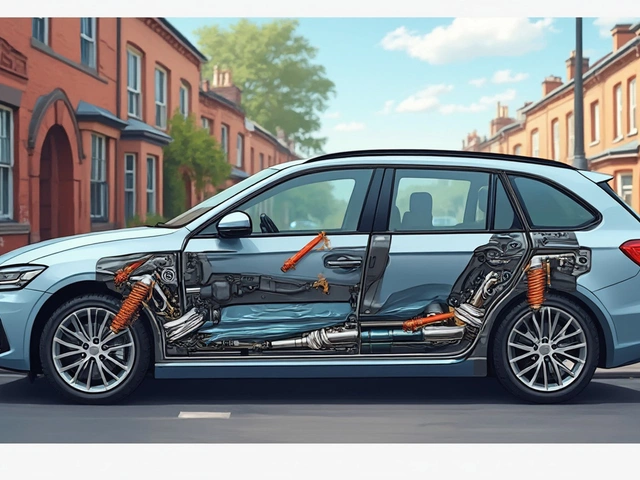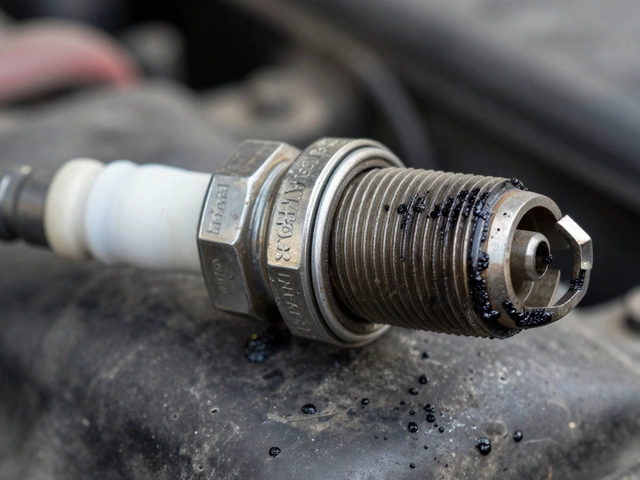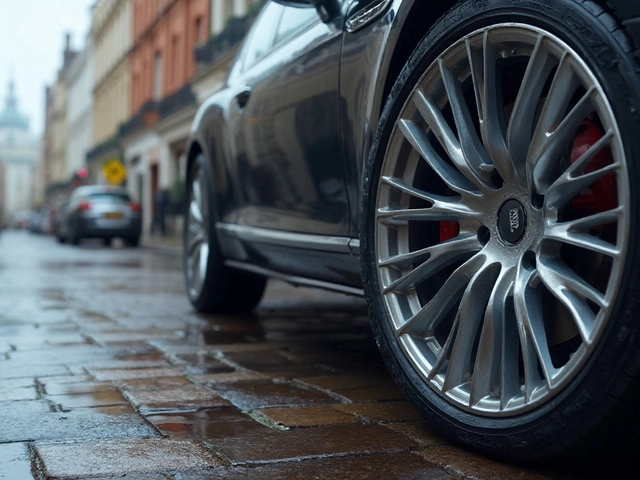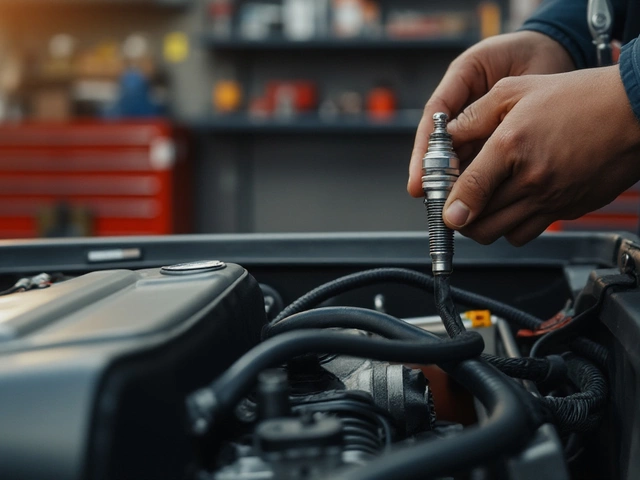UK Exhaust System Cost Calculator
Cost Breakdown
Parts Cost
£150 - £300
Labour Cost
£160 - £300
Total Cost
£310 - £600
A brand‑new exhaust system is the set of pipes, mufflers and emission components that channel engine gases away from the cabin and reduce noise can run anywhere from £150 on a budget model to over £1,200 on a high‑performance sports car. The spread isn’t random - it reflects the material, the car’s make, local labour rates and whether you go the DIY route.
- Basic stainless‑steel kit for a common hatchback: £150‑£300 (parts)
- Mid‑range aluminized‑steel system for a midsize sedan: £300‑£700 (parts)
- Performance or stainless‑steel cat‑back kit for a V8: £800‑£1,200 (parts)
- Professional installation: £100‑£250 per hour, typically 2‑4hours
- DIY install saves labour but adds tool and time costs
What actually makes up an exhaust system?
Before you stare at price tags, it helps to know the pieces you’re paying for.
- Muffler a chamber filled with sound‑absorbing material that reduces exhaust noise
- Catalytic converter a metal honeycomb coated with precious metals that cleans harmful emissions
- Resonator - fine‑tunes the tone without major noise reduction
- Exhaust pipe & tailpipe - the conduit that carries gases to the rear
- Clamps, hangers and gaskets - keep everything sealed and secured
Key factors that drive the price
Every decision point adds a cost layer.
- Material - Stainless steel resists rust and lasts longer but costs more than aluminized steel. A performance‑grade, mandrel‑bent pipe can double the price of a stamped‑crimp pipe.
- Vehicle make and model - A compact Ford Fiesta needs a simple kit; a BMW M3 may require a custom‑fit cat‑back or axle‑back system with tighter clearances.
- OEM vs. aftermarket - Original Equipment Manufacturer (OEM) parts match the factory spec and often carry a premium. Aftermarket brands give you a wider price spread.
- Emission standards - In the UK, a replacement must still meet Euro6 limits. Some cheaper kits omit a proper catalytic converter, making them illegal for road use.
- Labour rates - Independent garages charge £80‑£120 per hour, while dealer workshops can ask £150‑£200. Complex installs (e.g., V‑angle exhausts) take longer.
- Additional services - An MOT test after installation, rust‑proofing, or a warranty extension can add £50‑£150.
Typical UK price breakdown (2025)
Below is a realistic range you’ll encounter when shopping in England, Scotland or Wales.
| System type | Material | Parts price (incl. cat‑converter) | Labour (2‑4hrs) | Total install cost |
|---|---|---|---|---|
| Basic kit | Aluminized steel | £150‑£300 | £160‑£300 | £310‑£600 |
| Mid‑range stainless | Stainless steel | £300‑£700 | £180‑£350 | £480‑£1,050 |
| Performance cat‑back | Mandrel‑bent stainless | £800‑£1,200 | £200‑£400 | £1,000‑£1,600 |
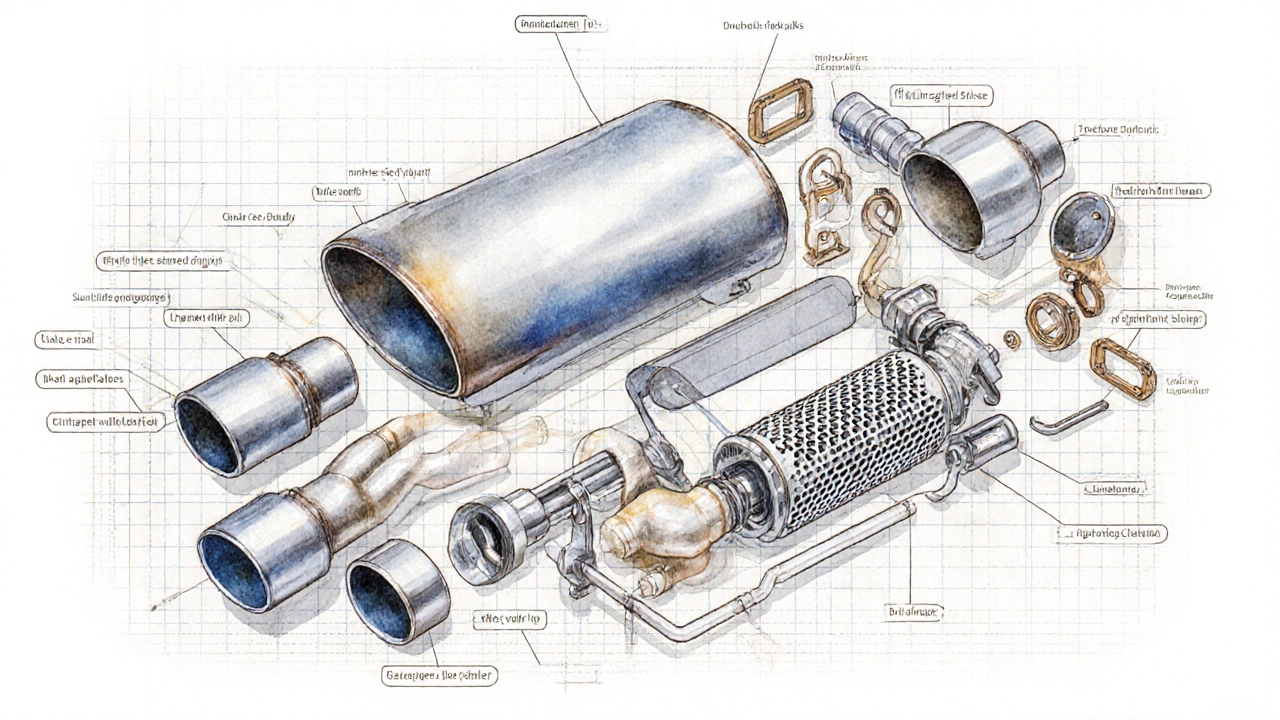
DIY vs. professional installation
If you like getting under the car, the DIY path can shave off the labour bill, but it’s not without hidden costs.
- Tools - You’ll need a torque wrench, jig, and possibly a lift. A decent set runs £100‑£250.
- Time - Expect 3‑5hours for a basic swap if you’ve never done it before. That’s the same as a junior mechanic’s labour charge.
- Risk - Incorrect fitment can lead to exhaust leaks, increased emissions, or even MOT failure.
- Warranty impact - Many manufacturers void the exhaust warranty if you install it yourself.
Professional shops bring expertise, proper lifts, and a guarantee that the work passes the next MOT. For most drivers, the added £150‑£250 in labour is worth the peace of mind.
How to pick the right system and keep costs low
Here are a few practical tricks that many British motorists use.
- Start with a reputable aftermarket brand that offers a **fit‑check guarantee** - it reduces the chance of ordering the wrong size.
- Shop local scrapyards for a used OEM system in good condition; you can often find a decent kit for half the new price.
- Ask the garage for a **labour quote broken down by hour**; some shops charge a flat rate for removal, then a separate charge for fitting.
- Combine the exhaust swap with other scheduled maintenance (e.g., brake job) to share lift time and cut overall costs.
- Check if your insurer offers a discount for a **lower‑noise exhaust** - some policies reduce premiums for quieter vehicles.
Remember, the cheapest option isn’t always the best long‑term. A rust‑prone aluminized pipe may need replacement in three years, erasing any upfront savings.
Quick reference checklist
- Determine material preference (stainless vs. aluminized)
- Confirm the system includes a catalytic converter compliant with Euro6
- Get at least three quotes - two independent garages and one dealer
- Ask about a **MOT‑ready guarantee** before signing
- Factor in tool costs if you plan to DIY
Frequently Asked Questions
How much does a basic exhaust system cost for a typical hatchback?
A basic aluminized‑steel kit (including muffler and catalytic converter) usually runs £150‑£300 for parts, plus £160‑£300 for labour, giving a total of roughly £310‑£600.
Will a cheaper exhaust affect my MOT?
Yes, if the replacement lacks a proper catalytic converter or produces excess noise, the vehicle can fail the emissions or noise sections of the MOT. Always choose a system that meets Euro6 standards.
Is stainless steel worth the extra cost?
Stainless steel resists rust and usually lasts 10‑15years, compared with 5‑7years for aluminized steel. If you drive in a wet climate like the UK, the higher upfront spend often pays off.
Can I install the exhaust myself?
DIY is possible if you have basic hand tools, a lift or jack stands, and the patience to follow a service manual. Expect to spend £100‑£250 on tools and 3‑5hours of work. Mistakes can void warranties and cause MOT failures.
Do performance exhausts really improve horsepower?
A well‑designed cat‑back or axle‑back kit can free up a few horsepower by reducing back‑pressure, but gains are usually under 5% unless paired with other engine upgrades.


